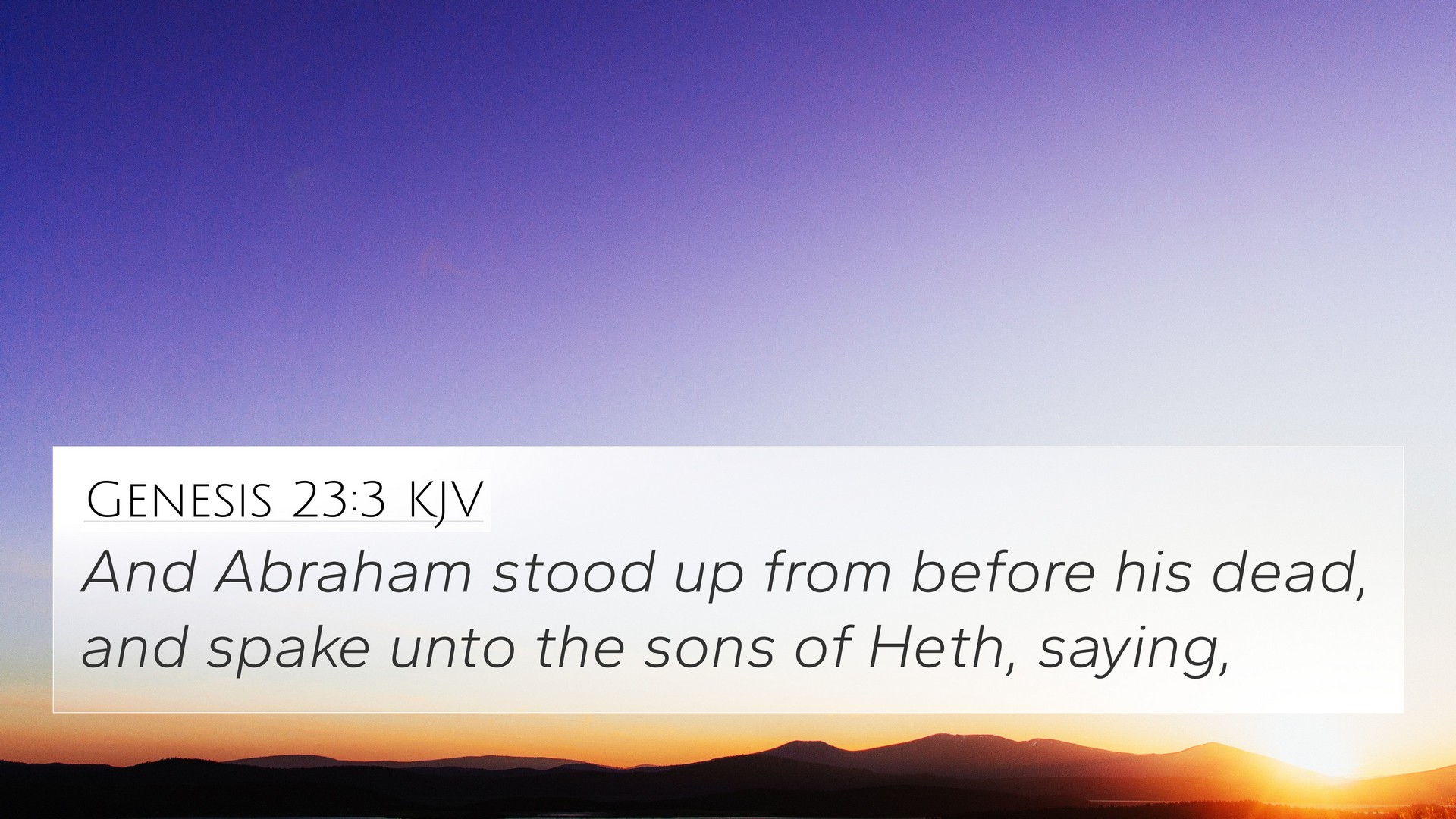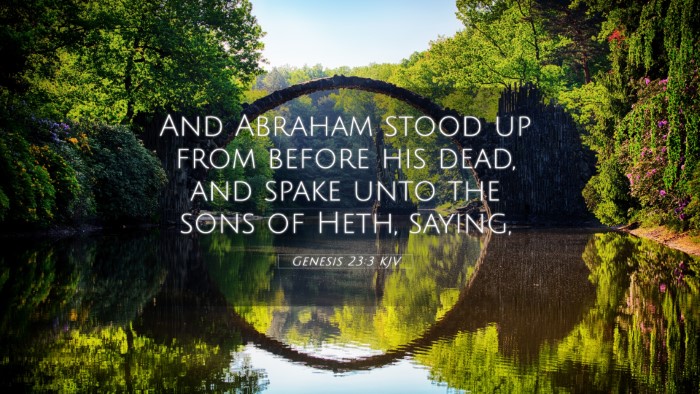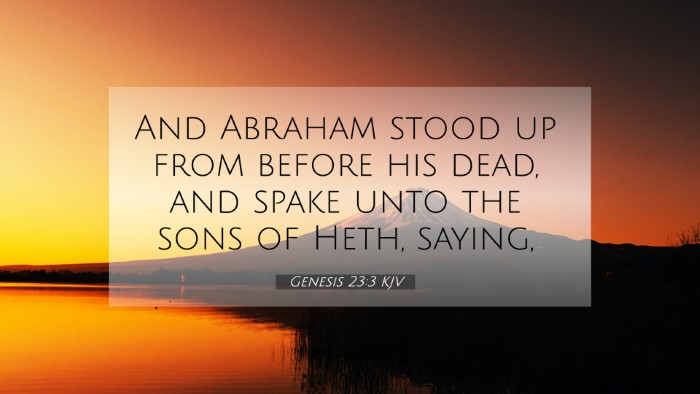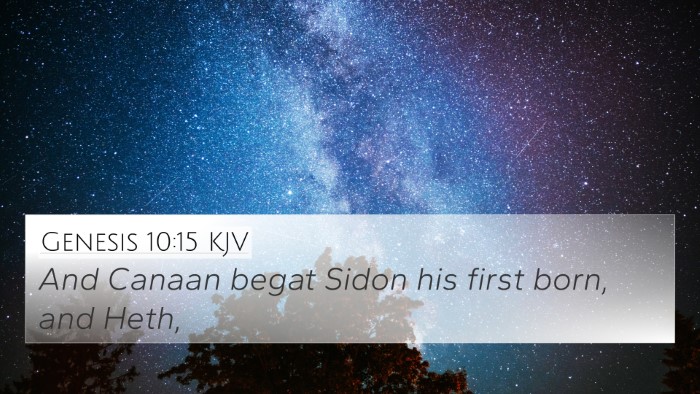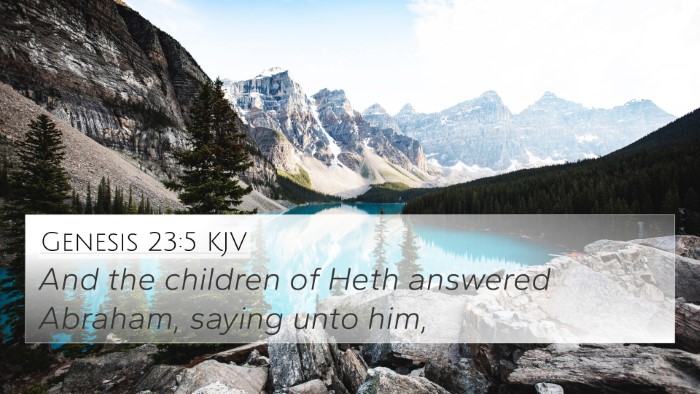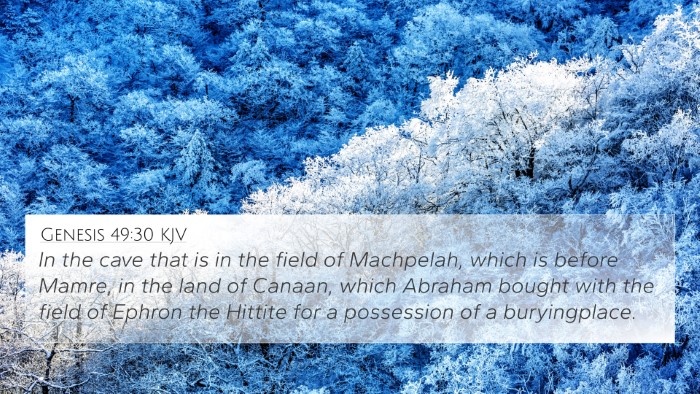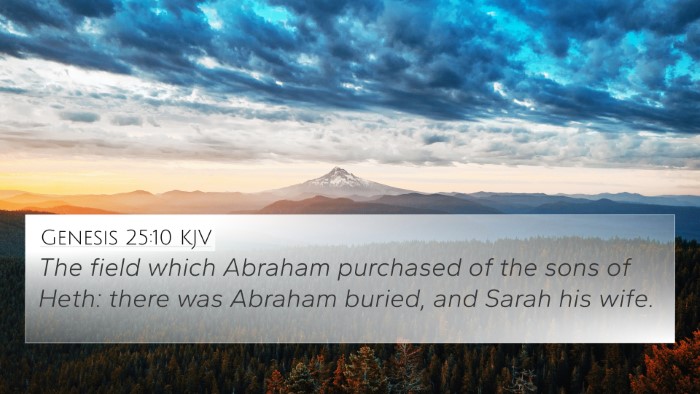Understanding Genesis 23:3
Genesis 23:3 states: "And Abraham rose up from before his dead, and spake unto the children of Heth, saying..." This verse marks a critical moment in Abraham's life as he grieves for his wife Sarah and approaches the Hittites to negotiate for a burial site.
Context and Significance
In this passage, Abraham's actions reveal several underlying themes that deepen our understanding of the scripture:
- Respect for the Dead: Abraham shows deep respect not only for Sarah's memory but also for the customs of the Hittites.
- Faith in God's Promises: His negotiations for land signify a hope in the promised land despite being a foreigner.
- Community Relations: Abraham’s diplomatic approach reflects his status and character among the Hittites.
Insights from Commentaries
Commentators provide various perspectives on this verse:
-
Matthew Henry:
Henry reflects on Abraham's sorrow and his resolve to secure a burial site. He emphasizes the importance of proper burial rites and the dignity it affords the deceased.
-
Albert Barnes:
Barnes highlights the cultural aspects of the negotiation, explaining Abraham's need to ensure his family's continuity in the land God promised.
-
Adam Clarke:
Clarke illustrates Abraham's character, the integrity in his dealings, and the importance of associating with local customs to honor Sarah.
Thematic Connections
This verse resonates with various other scriptures, creating thematic connections:
- Genesis 49:29-30: Jacob requests to be buried with his ancestors, reinforcing the importance of burial customs.
- Hebrews 11:9-10: Abraham's faith in God's promises is highlighted as he seeks a home that is eternal.
- Matthew 8:20: Jesus references the transient nature of earthly possessions, echoing Abraham's journey as a sojourner.
- Numbers 19:16: Discusses the significance of burial, suggesting the respect afforded to the dead in the Israelite tradition.
- 1 Corinthians 15:55: Provides theological context surrounding death and resurrection, pertinent to discussions on the afterlife.
- John 11:25-26: Jesus’ claim as the resurrection and the life adds depth to the understanding of death.
- Revelation 21:4: Speaks to the hope believers have regarding the absence of death in the eternal state.
Cross-References
Understanding Proverbs through cross-referencing can deepen knowledge and context. The following references are pertinent to Genesis 23:3:
- Genesis 1:26-28: The creation of mankind establishes humanity’s valuable position in God's plan.
- Genesis 12:1-3: God's promise to Abraham sets the stage for his actions in seeking a burial place.
- Genesis 15:13-14: The prophecy regarding Abraham's descendants and their future in a foreign land.
- 2 Samuel 24:24: The importance of sacrifices in securing land is mirrored in Abraham's negotiation.
- Acts 7:16: Stephen highlights the connection of burial sites to Abraham's legacy.
- Matthew 27:57-60: Joseph of Arimathea’s burial of Jesus parallels Abraham's negotiation for a tomb.
- Job 14:14: Discusses the hope and expectation of resurrection, a theme echoed in Abraham's actions.
Conclusion
This verse not only details a poignant moment in biblical history but also serves as a springboard for broader theological reflection and personal application. Through understanding Genesis 23:3 in light of its context, cross-references, and commentary insights, readers can engage in a comprehensive biblical analysis.
Further Study and Resources
To deepen your study of Genesis 23:3 and beyond, consider the following:
- Bible Concordance: A helpful tool to locate related verses.
- Cross-Reference Bible Study Guides: Essential for thematic studies connecting scriptures.
- Thematic Bible Research: Identify and explore significant themes across the biblical narrative.
